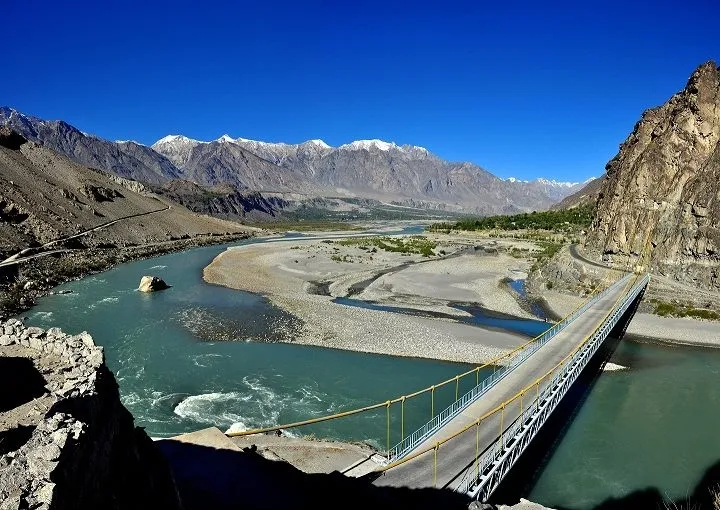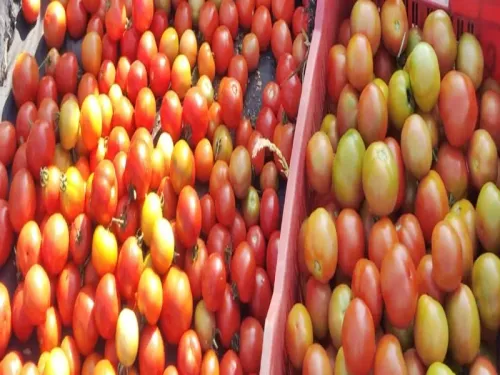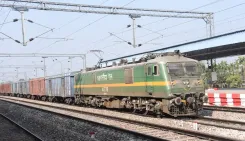Are Tensions Rising in Pakistan’s Gilgit-Baltistan Due to Chinese Dominance?

Synopsis
Key Takeaways
- Tensions are escalating in Gilgit-Baltistan over the influence of Chinese trade.
- Local traders feel economically marginalized by foreign interests.
- Protests highlight the need for local engagement in economic initiatives.
- Concerns about inequitable trade practices are growing among residents.
- The future of trade in the region hinges on addressing these local grievances.
New Delhi, Aug 17 (NationPress) Rising tensions are evident in Pakistan’s Gilgit-Baltistan region as local communities clash with the increasingly influential China-Pakistan trade framework, according to recent reports.
Social media clips circulating widely depicted Chinese nationals obstructing a crucial roadway in protest. Almost immediately, Pakistani traders organized a sit-in, effectively halting cross-border trade at the Sost town, a vital Gilgit-Baltistan (GB) immigration point, on July 31.
A report from the online platform Zamin.uz indicates that these occurrences are part of a larger pattern. They illustrate a growing discontent among locals regarding what they perceive as an exploitative trading dynamic—one that disproportionately benefits Chinese interests while local traders face systemic obstacles.
Traders in Gilgit-Baltistan have been expressing their grievances for years, but recent events highlight the heightened urgency of their concerns.
Many residents argue that the China-Pakistan Economic Corridor (CPEC)—a project celebrated by Islamabad as transformative—has yielded few tangible benefits for the local economy.
Instead, they claim their lands are being utilized as routes for foreign economic exploitation, suffocating local businesses with bureaucratic hurdles and an unfair market.
A common complaint involves the rigorous inspections of Pakistani goods and vehicles by customs officials, while Chinese shipments often encounter minimal scrutiny.
One trader from Gilgit-Baltistan shared with local media that they must produce extensive documentation and undergo intensive checks, whereas Chinese products face almost no oversight.
Adding to this inequality are concerns regarding employment. Chinese workers engaged in CPEC infrastructure projects are frequently flown in, bypassing local hiring, which leaves many residents feeling marginalized despite assurances of job growth.
The Pak-China Traders Action Committee (PCTAC) has intensified its protests at the Sost Dry Port in Hunza since July 21, demanding an end to what they call illegal taxation imposed by federal entities.
This committee, which includes traders, hoteliers, transporters, and local enterprises, has blocked the Karakoram Highway in the Hunza and Nagar districts, disrupting trade with China.
Tensions escalated following the arrest of PCTAC leaders Abbas Mir, Ali Nazar, and Farman Ali Tajik on the night of July 20–21, who were released the next day due to pressure from the trading community.
The conflict arises from federal authorities, including the FBR and Pakistan Customs, enforcing income and sales taxes on Chinese imports via the Khunjerab Pass.
Historically, traders from Gilgit-Baltistan were informally exempt from such taxes, particularly for small-scale and local transactions. However, recent stricter enforcement, citing smuggling issues, has fueled traders' anger.
Despite its strategic significance, the region remains in a constitutional gray area, lacking full provincial status and frequently excluded from mainstream political discussions.
This marginalization has allowed Islamabad to advance large-scale economic initiatives—such as CPEC—without substantial local engagement.
Critics argue that this strategy reduces GB to a mere transit hub, valued solely for its geographic position rather than its inhabitants.
While Islamabad maintains a subdued role, China's expanding influence in the area is becoming increasingly apparent—and contested.
From road and tunnel construction to managing customs facilities, Chinese firms and personnel are a common sight in towns like Sost and Hunza.
Though some locals acknowledge improvements in connectivity and infrastructure, many feel overwhelmed by what they perceive as a form of economic occupation, the report concluded.









